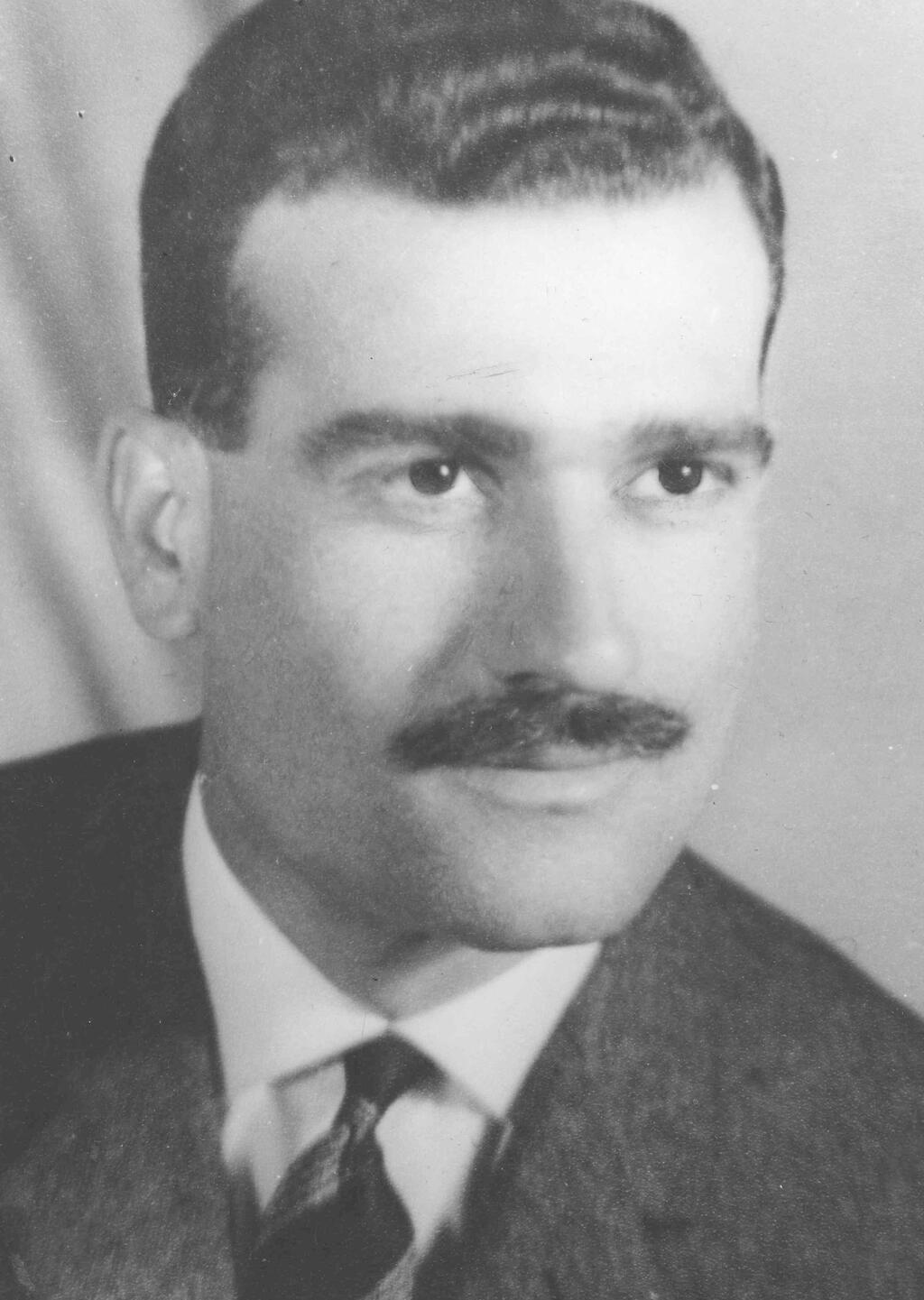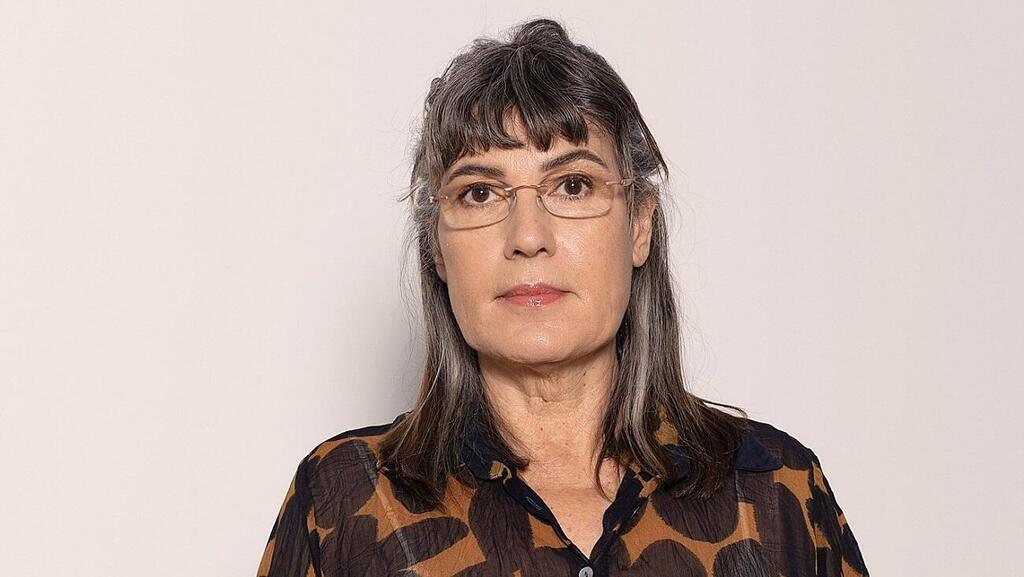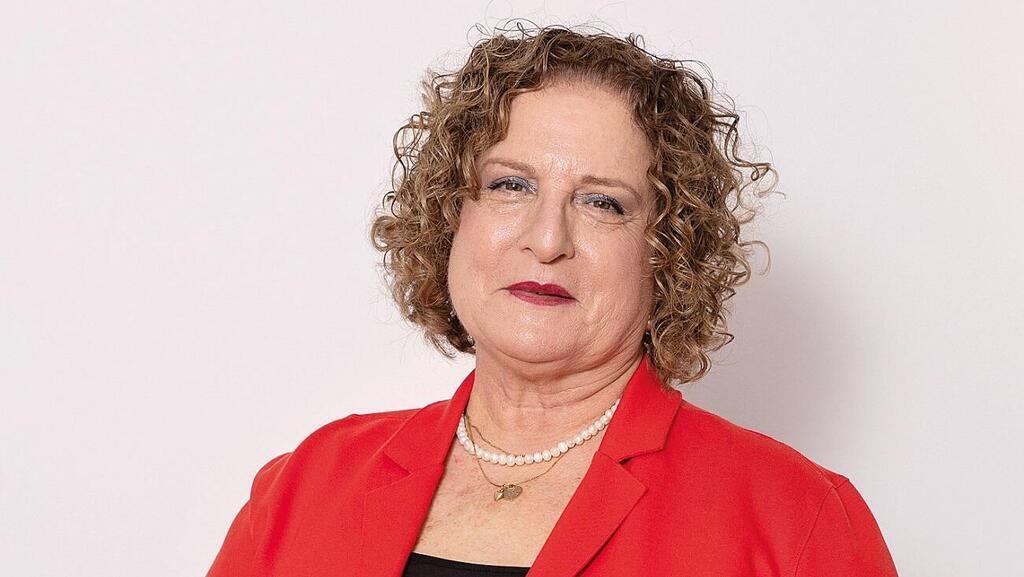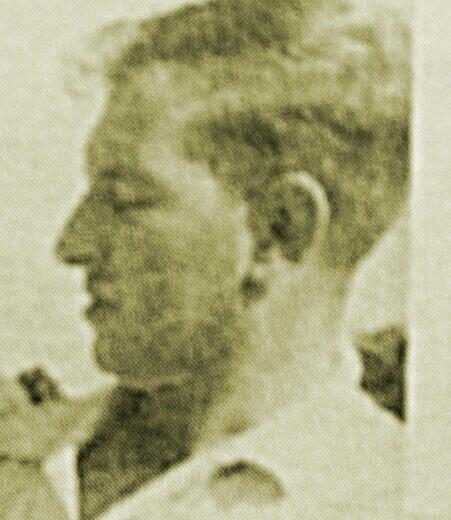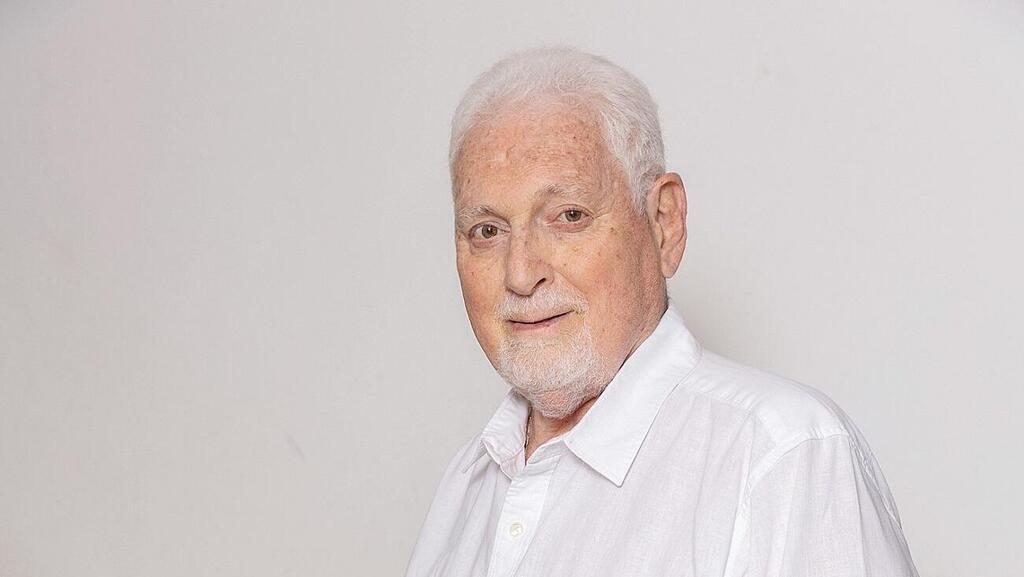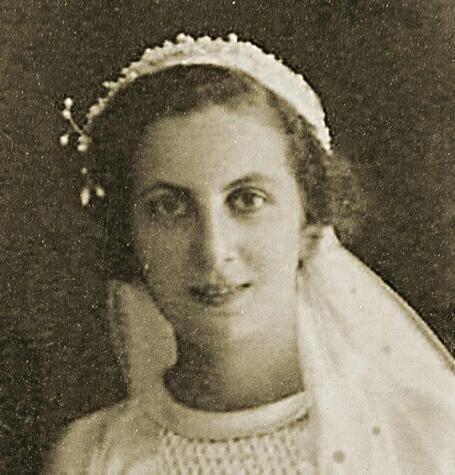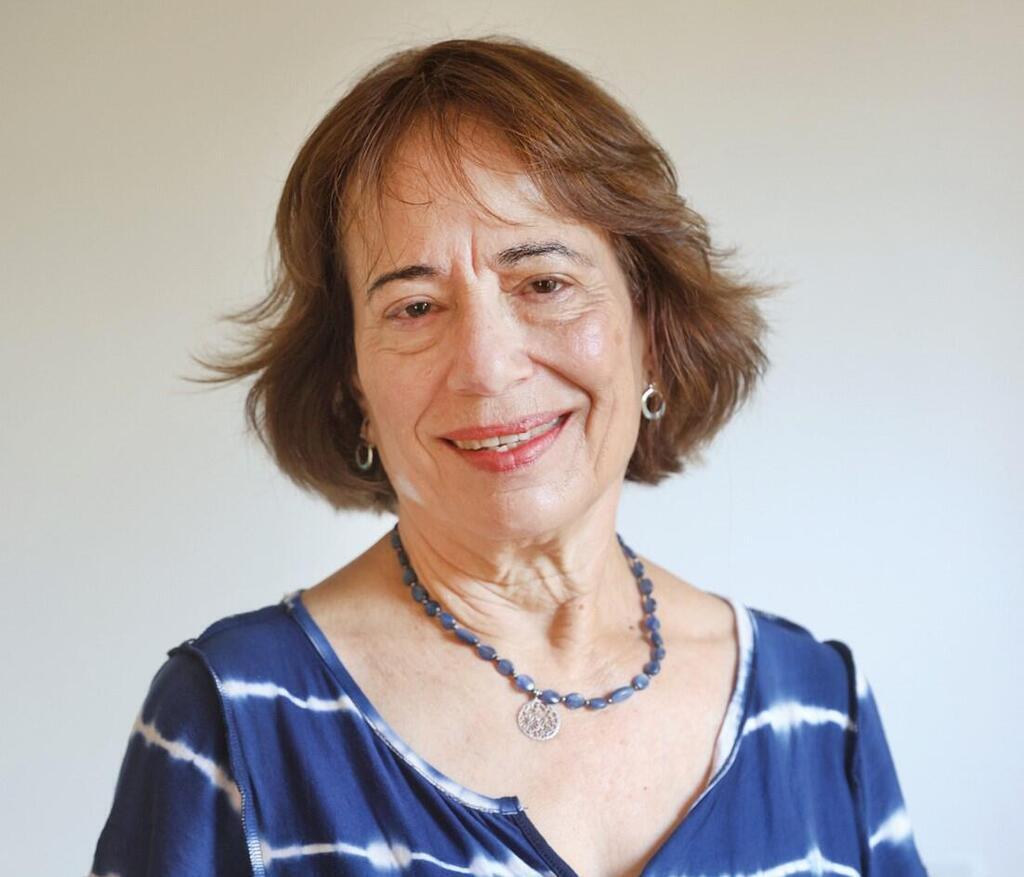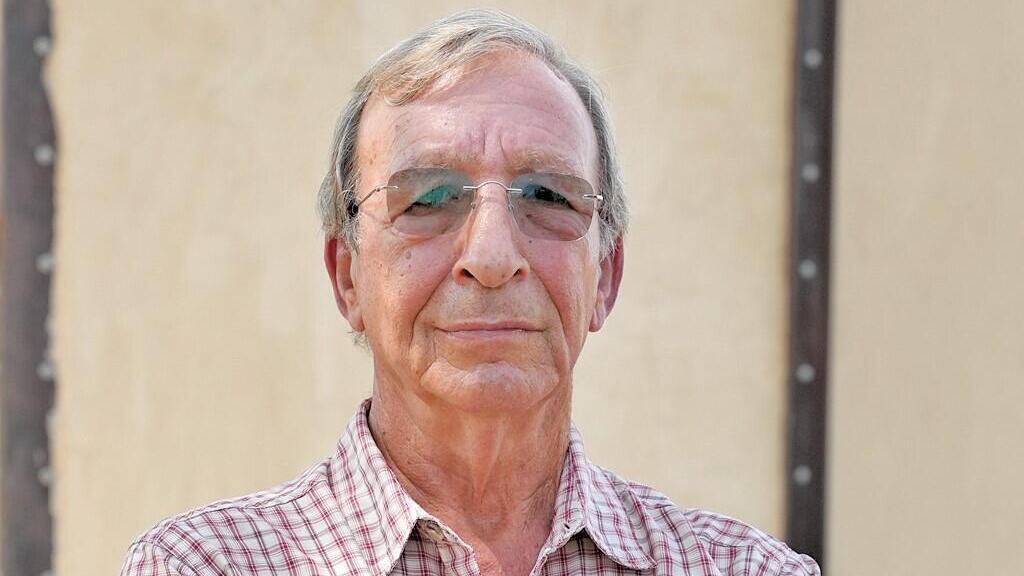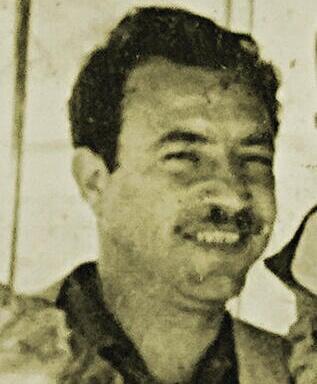Getting your Trinity Audio player ready...
Mysterious errands on behalf of the parents, living under a family cover story that must not be revealed to anyone, and a parent who disappears for months at a time. The children of Mossad agents talk about the lies they were forced to hear and tell, the secrets that were exposed only years later, and the longing for their parents who were most of the time, behind enemy lines.
Read more:
Sophie Cohen dislikes secrets. The daughter of the spy Eli Cohen, "Our Man in Damascus", who is considered the symbol of heroism was only four when her father was captured and hanged in Syria. "I try to have no secrets," she says today, more than five decades after that scarring affair.
"Espionage is a cruel profession. It makes everyone post-traumatic. You lie regularly, live far away from your family, you cannot be your true self, you ruin other people's lives: those you have to kill, catch, recruit."
Cohen's sober view of the complexity behind the world of intelligence is shared by other sons and daughters of Mossad agents. Their parents would disappear, they too lived in made-up identities and never really knew what their parents were doing. Only years later could they be proud of the bravery for which their family paid a price. Quite a few families live this way even today; The father or mother is in the shadows - and the whole family is affected.
Seven children of Mossad agents, among the most senior in their field, will share their stories in a story-telling festival next month. Here are some of them.
Sophie Cohen, 63, is a psychologist from Herzliya. She is a widow and has one daughter and one grandson.
"Our man in Damascus," apparently the most famous spy in the country's history, was for Sophie Cohen simply 'a father'. Cohen was sent on a mission to Syria, time and again, without fear, despite being a family man, married and the father of three very small children. His cover story was that he was a Syrian businessman named Kamel Amin Thaabet, who had returned to his country from years in South America. He befriended top people in the Syrian government and provided critical intelligence in the first half of the 1960s. In January 1965 he was caught and in May of the same year, he was publicly hanged. To this day, his burial place is unknown, and his capture is the greatest trauma in the Israeli intelligence services.
"My father left the house for the last time when I was four and a half years old," says Sophie. "Back then, I didn't understand that he was a spy. I was never told that he had died or that he was a spy. I figured it out by myself, from commemorations and memorial ceremonies. I don't remember anyone taking the time to tell me the story, and it took me many years before I even wanted to get into it. I grew up in Bat-Yam and lived there until 1968. Everyone around us knew who we were and treated me differently. Father was famous and we became a well-known family. It was embarrassing for me to change from a very quiet home to the center of something that I didn't understand. I remember myself aged six or seven, walking down the street, and realizing that everyone was looking at me. Three years later, we moved to Ramat Gan, and there too people spoke about us and our story, but they never turned to me personally. There was a lot of gossip about us and lots of attention on us. People expected a lot from the 'children of Eli Cohen', expectations that we mostly didn't meet. They expected us to be brilliant and excellent in everything. Unconsciously but consistently, I was a disappointment. We made sure to get bad grades, to be careless, to be lazy.
I have some memories of my father. He was at my brother's circumcision ceremony (Brit Milah); I remember it was hard for me to trust him each time he came back. I remember him driving a jeep, but not ours; It was probably borrowed from the Ministry of Defense. It was one of the first times I saw him driving. He was in a great mood, singing and clapping, and I was anxious that he would take his hands off the wheel and something bad would happen. Another time I remember, was when he was returning to Israel. My mother was standing on the balcony at the airport, holding my sister Irit in her arms, and someone, probably from Mossad, took me to the plane. My father was wearing a coat and he was a stranger to me. I was shy, and the man encouraged me to speak to him. I pulled on my father's coat, and he bent down and picked me up, very nervously. I guess he was stressed and filled with adrenaline and didn't notice that he was hurting me with his grip. He always brought us expensive clothes and toys, when he returned home. Before he would leave on a mission he would write postcards, and The Mossad would deliver them every once in a while.
"It felt like a burden to be Eli Cohen's daughter"
At first, it felt like a burden to be Eli Cohen's daughter. It was embarrassing and I never knew if people were nice to me because they knew my story or because of me. I couldn't understand what they meant when they said my father was a hero, because as far as I was concerned, heroes don't die.
When I grew up, I realized that as Eli Cohen's daughter, I had to assume a role and be more patient and understanding to others because we were the only address for those who wanted to connect with the story. I learned to contain all the emotional range that comes with being Eli Cohen's daughter. I would be sitting in a restaurant in the middle of the day eating pizza, and suddenly someone would come up to me and tell me he wants to pay his respect, and I have to listen, understand and be empathetic. Maybe that's why all of us, the children and grandchildren, did not serve in combat roles in the military. We got to see the other side of heroism, and it's not attractive.
From a young age, I had to observe, feel, and understand things on my own, maybe that's why I chose to be a psychologist. I had a patient who had been in the Mossad. At first, he didn't know I was 'the daughter of', but when he found out things changed, our connection became different, a connection with someone who understands, and shares a common pain."
Anat Yahalom-Rimshon, 68, a married mother of three and a grandmother of seven, lives in Kfar Saba. She lectures in Israel and around the world about her personal story and the history of the State of Israel.
During the Yom Kippur War, Anat who served in a combat role, was seriously injured; but that was not the first time she paid a price for service to the country. Her father, Yosef Yahalom, a member of the Kinneret Kibbutz, was head of Mossad's operations in Morocco set up to secretly transport Moroccan Jews to Israel. He refused to leave sick and elderly people behind and was reprimanded by his commanders in Tel Aviv. Some 60,000 people immigrated from Morocco during his service. In 1965 he went to Paris on a mission for the Mossad and was apparently involved in monitoring neo-Nazi parties in Germany. In 1982, he went on one last mission on behalf of the Mossad, this time in Taipei. Yosef Yahalom died in 2010 at the age of 86.
"My father was recruited into the Mossad in 1960. Isser Harel, then Director of the Mossad, was looking for Holocaust survivors to become agents because he thought they were likely seeking revenge," says Yahalom-Rimshon. "In the beginning, it involved locating the Nazi leadership in Europe. His cover story was that he was German, and indeed he was tall, spoke fluent German, and looked Aryan. He had no problem fitting in. He even went back to his original childhood name, Erwin Diamant. The kibbutz had to approve his move to Europe and not all the members were in favor of him leaving, but the secretary general said that if his service is needed, the Kibbutz must not stand in the way.
My father left home for two years and did not say where he was going or when he was to return. Back then there was, of course, no internet, there were no phones in private homes in the Kibbutz, and no television. The only connection with him was through telegrams that would say when we could expect his call, that would come to the Kibbutz office. I remember that us daughters, would sit under the eucalyptus tree and wait while our mother went upstairs for a short telephone call with him. Every now and then he would send a postcard from somewhere. We didn't really know what he was doing. No one thought he was a spy. When I was asked I would say 'My father is abroad'. At that time, many people would travel for Zionist missions for the Israel Bonds or the Jewish Agency.
The first time I met children 'like me' was when we lived in Paris. Being the children of Mossad agents, was awful. Everything was about rules. We were forbidden to talk or ask. We were girls who kept secrets. We were told that if anyone would find out who our father was, something bad would happen. We didn't even talk among ourselves. Talking about a secret that could harm your father is scary. 'Don't answer questions, and if one of your classmates asks about your father, you say 'It's none of your business,' our parents said. These are things that stay with you for life. To this day I know how to 'gather intelligence', by entering a room, looking at people for a few minutes and being able to tell general things about them. It's in our DNA. I still have friends from the days in Paris and only now, when our fathers are no longer alive, do we allow ourselves to talk about it.
We were told that if anyone would find out who our father was, something bad would happen
Father's cover story was that he was a German executive. That's why we lived in the prestigious 16th district, in a 12-room apartment. My father didn't use me in his work, but there were two events I remember. The first was when he took us, the girls, to a movie, and told us to wait near the exit. But he mistakenly thought that the entrance was the exit, So, we were there half the night, in the dark, waiting for him. He in the meantime was sure that we had been abducted and had all of Mossad up on their feet to track us down.
The second event I remember was when we went like we had done once a week, just the the two of us, to buy Israeli newspapers on Champs-Élysées. One day we got there, and I noticed a strange look on his face, and he said: 'Please sit here facing the outside, and don't move until I come back.' I saw him running down the Champs-Élysées moving from one side to the next, and he returning an hour later. When I asked him what was going on he said he was sure that he had been made. "Then why did you run in zigzags?" I asked, and he explained that had he been shot, running the way he did, would have given him a better chance to avoid being hit. At a later age, my parents were sent to the Far East, I believe that was also for the Mossad. When I flew to visit them I had to fly halfway around the globe to avoid flying over Arab countries. In 1977, after the Yom Kippur War and after I was injured, I flew with Prime Minister Begin to the signing of the peace treaty with Egypt. My father was quite nervous because there was a detailed description of him in the Egyptian intelligence files. 'There is peace,' I told him. 'I am with the Prime Minister, what could happen to me?' But he still looked very pale."
Yitzhak Levanon, 78, a married, father of three and grandfather of seven, lives in Herzliya. He had been a diplomat and served as Israel's ambassador to Egypt. Currently, he lectures on Egypt at Reichman University.
Sometimes, it is the mother who is the spy. Yitzhak Levanon, a native of Lebanon, is the son of Shulamit Kishik Cohen. From the late 1940s to the beginning of the 1960s, Kishik Cohen gathered intelligence from Lebanon and Syria which assisted the Mossad in bringing the Jews of Lebanon and other Arab countries, to Israel. After her capture, she was sentenced to death, but her sentence was reduced to 20 years imprisonment. Her husband and grown children were also questioned at the time and accused of knowing about her activities. She was released as part of the prisoner swap following the Six-Day War and died in 2017 at the age of 100.
"I realized that I had grown up in the shadow of something much bigger, stronger and more dangerous"
"As far as I was concerned, I had a normal mother. I had no idea about her secret activities at night. As a child, she was present when I went to bed and when I woke up and had prepared a sandwich for me in the kitchen. Years later, when she was arrested, it became clear to me that at night she would travel to Israel, receive her instructions, and drive back home. Mother was active at my school where she taught Hebrew and team building. It was only later that I realized that team building was intended to prepare students for their move to Israel. At the age of 15, I suddenly became aware of the increased number of people passing through our home. When I asked about it I was told it was none of my business and that I must go to sleep. But I was a nag and kept asking so to get me off her back, my mother would send me on little errands for her. The first task was to go to a place not far from home, where a group of boys and girls who I later realized came from Syria, were staying. My job was to make sure that they boarded a bus safely and to see that the bus drove off. I was later questioned about this by Lebanese intelligence. Syrian Jews would arrive in Lebanon on their way to Israel, and my mother made sure that they did not stay in Beirut for more than one night so that the authorities would not notice them.
Once a girl who was about my age arrived and was probably unable to travel. Mother asked me to take her along with my friends, as if she was a member of our club, from school. And indeed, we went to concerts and hung out and on the third- day my mother put her in a car with two guides and sent her to Israel. To this day, I don't know who she was, and although I have a photo of us from our time together, I would never make it public, so as not to get her into trouble. Mother would deliver notes through me to the Jewish community. She would say: 'This note will remain in your hands, do not open it.' We are seven children, but she only sent me, and when she did, I felt like James Bond. Once someone came to our house and when my mother heard about it over the phone, she asked me to keep him there for a while. It turns out that he was a smuggler who came from Israel with instructions from the Haganah. (The paramilitary group that preceded the IDF and operated before independence)
"My mother and I had our own private language, we spoke in code. I called the children from Syria who got on the bus 'rolls of cloth' because my father was a cloth merchant and 'Synagogue,' meant the Jewish Agency. Whenever we wanted to talk about Israel, we would say: Go up the mountain. When she was about to be released from prison, the Red Cross representative said we could either go to Israel or Geneva. When I told Mom about it I said 'They suggest we go up the mountain or go skiing,' which was code for Geneva. 'We are definitely going up the mountain,' was her reply.
"On Fridays at noon, my mother would ask for complete silence, sit next to the Grundig radio that my father had bought for her and listen to a program on Israeli radio with greetings sent by listeners. I never understood what was so interesting about someone from Be'er Sheva sending greetings to someone in Dimona. I later learned that she was given instructions in those broadcasts. When she was caught, I read things in the press and realized that I had grown up in the shadow of something much bigger, stronger and more dangerous. I wondered how in hell, she managed, to do what she had done. I had been naive.
When we were allowed to leave Lebanon, my father, siblings, and I traveled through Cyprus, while she was taken through the Israel-Lebanon border crossing. I remember calling my grandmother to make sure that she had arrived in Israel because there were rumors that Syria demanded that she stand trial after Lebanon had released her. My aunt picked up the phone and I asked to speak with my mother but was told that she was not there. I was sure it was all over and decided to go back to Beirut to look for her. I already had my suitcase packed, while my father and sisters tried to convince me to wait. It later turned out that my mother had been at the hairdresser's and since I did not speak Hebrew, my Aunt and I were unable to communicate properly. At the end of my term as ambassador to Egypt, someone told the American ambassador about my mother, and she found it hard to believe. I was proud to say I was her son.
Michelle Bineth-Dagan, 72, is a mother of three and grandmother of nine.
Michelle's father, Lt. Col. Meir Max Bineth was an Israeli intelligence officer who among other things went undercover, as a German businessman who had connections in the Middle East. Between 1952 and 1954 he lived in Cairo, from where he transmitted intelligence. His wife Jane and daughter Michelle joined him. He was caught after what was known as the "Unfortunate Affair" (or the "Lavon Affair") a failed Israeli covert operation that recruited local Jewish youth to plant bombs in civilian targets. Their capture, trial and fate, remained a scar not only on their lives but on the country. Bineth understood that they were put on a show trial and decided to commit suicide before having to testify. He was 37 years old at the time of his death. His daughter Michelle was three years old.
"I have always been a part of my father's cover story as a spy. It was only natural for a 34-year-old man to have a wife and a daughter. When we lived in Egypt together I had documents signed by King George VI, stating that I was born in England under the name of Michelle Patricia, although I was born in Tel Aviv and my name was Michal. My mother's (Jane) documents were also fabricated. Although she was born in South Africa, her place of birth was noted as 'London.' When I was two years old, my father was sent on a mission to Germany and we joined him to bolster his cover story. We had an apartment in Bonn, then the capital of West Germany. We later moved around to other countries. We spent three months in Italy and a few months in England. At first, my mother didn't know who my father was working for. Maybe she suspected. But one day, while in Israel, the Mossad forgot to replace stamps on the envelopes and a letter arrived with Egyptian stamps; that's when she understood. We kept moving around until we arrived in Egypt. There was a lot of tension and fear of being identified.
I refuse to say that my father was a spy, certainly not an agent. I don't like such definitions. My father was a secret fighter for the State of Israel. And to me, this means being alone often, secrecy, not knowing what can be said and what cannot. After he committed suicide, friends said he was a hero, but if that was the case why has he never been recognized by his superiors, the IDF, or the government?
When the surviving members of the cell whom he had recruited were released and allowed to travel to Israel in 1968, I thought his name would be remembered but it never was. People know who Eli Cohen was, who Marcelle Ninio - a member of the spy cell, was – but no one knows who Meir Bineth was. But as a girl, I could not fight for his recognition because I was suffering my own pain. We left him late in July and he was captured on August 10. He could have gotten out. It drives me crazy.
When I was a child, children who did not have fathers were teased. I was quiet and sensitive and I cried a lot. When I was in 6th grade, on Memorial Day, the teacher said in class that my father was a hero, and had been a spy." She was our neighbor and therefore she knew our story. Years later she told me that my mother was angry for making me cry.
I knew all the details from a very early age, five or six. My mother's Hebrew was not that good, and when the government launched a website naming all those who had died in the service of Israel's defense, I was the one who wrote in my father's story. I was 11 or 12 at the time. I later decided to become an educational counselor and a therapist for children with learning difficulties. As a child, I was very quiet and no one made an effort to talk to me so it became important for me to study a profession that involves contact with children so that no child will be left unnoticed. Maybe it has to do with the fact that I grew up only with my mother, without my father."
Assaf Kedem, 70, a married, father of four, grandfather of seven. He lives in Kidmat Zvi in the Golan Heights, owns a winery and is a winemaker.
Assaf's father, Aharon Mizrahi, is considered one of the greatest undercover agents of the "Caesaria" division in the Mossad. When the State of Israel was established, Ben-Gurion asked Yitzhak Shamir, who had commanded the Lehi, a right-wing militant resistance group, to join the Mossad. Shamir agreed on condition that three of his fighters were invited to join as well. One of them was Mizrahi who later succeeded in infiltrating the Palestinian Fatah group and served as its treasurer in Europe. After concerns arose that he may have been exposed, and as one of the lessons from Eli Cohen's capture in Syria, he returned to Israel at the end of 1969, and died in 1976.
"My parents divorced a few months after I was born. I have a brother, Jacky, who is two years older than me. I grew up without a father, I would see him only once every year or so, sometimes once in two years. I grew up with my mother in Givatayim. My uncle, Bechor Sheetrit, who was amongst the signators of the Declaration of Independence and served as Minister of Police, lived across from us. My mother also worked for the police, and I was actually raised by my grandparents. I was a very naughty child, but the Mossad took care of us. When I was expelled from school, my mother would call someone, and then two people from Mossad would come to the school and talk to the principal. That would immediately change the situation and I would be treated very nicely from that point on.
"From time to time we would receive packages of clothes, which were never the right size. Always too big or too small, because someone from the office would buy them and send them to us on behalf of our father. I got a suit for my bar mitzvah. Once, I got an accordion, and another time, a guitar. I also received letters and packages, bearing Israeli stamps. His cover in Europe was that of a rich businessman, in the field of electric appliances. so students who were from the Fatah group and studied in Germany were all his guests.
Only after he died did I dare to say, 'My father is a spy'
"When I was asked what my father does, I would say that he works overseas. It sounded nice in those days. But really, until the age of 14 or 15 I never really knew what he was doing, I only understood then, that he was working in the service of the country. He never talked about what he did. In fact, just a few months before he died, he told me that he had done all kinds of things. The Mossad later told us his story. I never understood why a married man with two children would enlist in the Mossad.
Once he taught me how to follow people. When my father lived in Germany, he had an affair with a young woman named Marion, and when his cover was blown, she came to Israel and became his wife. Marion was beautiful and loved to go to the beach; one time he was worried about her and asked me to see where she was. 'Don't stand out,' he told me. 'Stand behind the pillar and look'. In 1973 she left him , but very quickly he had another woman.
Only after he died did I dare to say, 'My father is a spy'. It happened gradually. I remember being at a friend's house with the director of the El Al office in Frankfurt. He told the guests, that someone well-known in the security community, who had infiltrated the Fatah and served as a treasurer, had died. I said that he was my father which surprised and excited him.
Yitzhak Shamir wrote a eulogy that was published in Yedioth Ahronoth, and suddenly everyone in the kibbutz where I was living, knew that my father was a spy. I was quite proud of him. I'm not mad at him or at the Mossad. I think he was afraid that Fatah would kill him in Israel. Mike Harari, who was his commander, said that if my father had not been exposed, the 1972 Munich Olympics massacre would not have happened.
A few years ago, I named a new wine after Caesaria. I asked for Mike's approval and he was delighted. No other spy unit in the world has its own wine. To this day, people think that my winery belongs to the Mossad. Every year we invite the guys from Caesarea, for the release of the new vintage, and that's how we commemorate my father. Each bottle has a sticker that reads, 'in honor of Caesarea Unit' with my dad's picture. Sometimes I get a call from Mossad people from all kinds of places in the world who want to tell me that they are sipping a glass of Caesarea wine."


